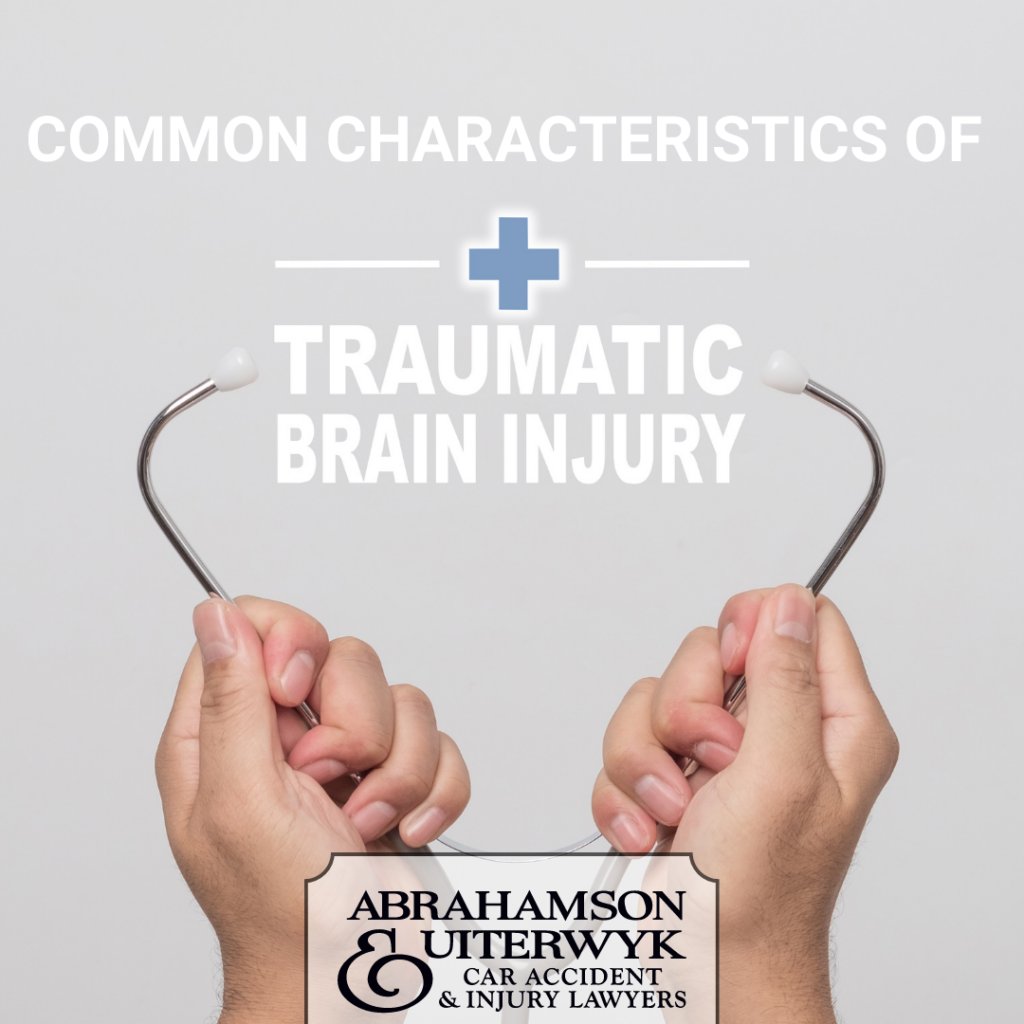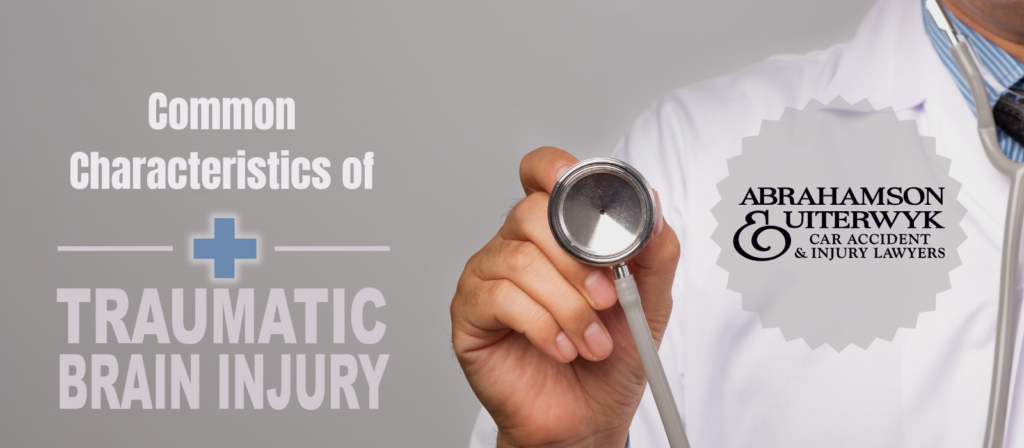
A traumatic brain injury (TBI) is devastating and can have life-long effects on an individual and his or her loved ones.
According to the Centers for Disease Control (CDC), TBIs contribute to 30% of all injury deaths [1].
Every day in the United States, 153 people die from injuries that include TBI. A TBI can affect anyone at any time.
If you’re dealing with a TBI or helping to care for a loved one who is suffering from one, then you know first-hand the physical, psychological, and social effects such an injury can have. For those seeking justice after a TBI caused by someone else’s negligence, working with no fee unless you win lawyers ensures you can pursue compensation without the added financial burden during an already challenging time. Read on for a complete traumatic brain injury (TBI) explanation.
Traumatic Brain Injuries from Car Accidents
Car accidents are one of the leading causes of traumatic brain injuries (TBI). The sudden force of a collision can cause the brain to hit the inside of the skull, leading to serious, often life-altering damage. Traumatic brain injuries can range from mild concussions to severe, permanent brain damage that impacts memory, cognitive function, and quality of life.
If you or a loved one has suffered a traumatic brain injury in a car accident, you may be entitled to compensation for medical expenses, lost wages, and the long-term impact on your life. At Abrahamson & Uiterwyk, we understand the complexity of TBI cases and are here to help you navigate your legal options.
What is a Traumatic Brain Injury? A Traumatic Brain Injury (TBI) Explanation
A traumatic brain injury is caused by a bump, blow, or jolt to the head or a penetrating head injury that disrupts the normal function of the brain. The trauma to the head and brain results in temporary or permanent brain dysfunction. Some common causes of TBI are falls, vehicle-related injuries, or sports injuries.
Not all bumps, blows, or jolts cause a TBI.
The severity of a TBI can range from “mild” (which may include a brief change in mental status or consciousness) to “severe” (which may constitute a sustained loss of consciousness or memory loss).
Most TBI’s are mild and are commonly known as concussions.
In car accidents, this can happen due to:
- Direct Impact: The head hitting the steering wheel, dashboard, or window during a crash, a common traumatic brain injury example resulting from sudden force.
- Whiplash: The violent back-and-forth motion of the head can cause the brain to move inside the skull, leading to injury even without a direct blow.
- Penetrating Injuries: Debris from the crash may cause a penetrating injury to the skull, leading to severe brain damage.
These are just a few traumatic brain injury examples that can result from a car accident.
What are the Common Types of Traumatic Brain Injury?
In addition to the severity of a TBI, the type of TBI can make a difference in a person’s recovery and long-term prognosis.
Common types of TBIs include:
- Concussion – Concussions are the most common type of TBI and occur when a blow to the head causes the brain to shake within the skull or rapid deceleration. While often considered a mild form of brain injury, concussions can have serious, lasting effects if not properly treated. A concussion typically causes an altered mental state, either temporary or prolonged.
- Contusions (Brain Bruises) – A contusion is a bruise on the brain, usually caused by a direct impact to the head. Contusions can cause localized bleeding in the brain, leading to swelling and increased pressure, which may require surgery.
- Coup-contrecoup – This type of injury occurs when the brain is injured at the point of impact (coup) and on the opposite side (contrecoup) as the brain bounces within the skull. These injuries can cause significant damage to multiple areas of the brain.
- Diffuse Axonal Injury – Similar to a concussion but more serious. DAI occurs when the brain’s nerve fibers (axons) are stretched or torn due to the violent motion of a car accident. This type of injury can result in widespread damage to the brain and is often associated with long-term disabilities or coma.
- Hematoma – The rupture of a blood vessel leading to the collection of blood in brain tissue or open spaces.
- Penetrating Head Injury – Occurs when an object, such as a sharp instrument or a bullet, breaks through the skull bone and rips through the brain tissue. These injuries often require emergency surgery and carry a high risk of permanent brain damage.
- Skull fracture – Fracture of the bones surrounding the brain.
What are Common Causes and Traumatic Brain Injury Examples?
TBIs can be caused by a number of different situations, but according to the CDC, the most common causes of TBIs are:
- Falls
- Being struck by or against an object
- Motor vehicle crashes
- Assault
- Intentional self-harm
Who is at Risk for a Traumatic Brain Injury?
Every American has a 1:160 chance of sustaining a TBI each year.
Men are twice as likely as women to sustain a TBI.
Children under 5 years old, teenagers, and the elderly are the three groups who are at the highest risk.
Recognizing Traumatic Brain Injuries
Traumatic brain injuries can have a wide range of symptoms and characteristics; some which do not become apparent until days or weeks after the trauma has taken place [2]. It takes time to diagnose things like post-concussion syndrome after a car accident.
What Are the Common Characteristics of Mild TBI?
According to the Brain Injury Association of America [3], some early common symptoms of traumatic brain injury or TBI include headache, dizziness, memory problems, disorientation, nausea, and vomiting. Later symptoms can include additional issues such as fatigue, mood swings, tinnitus, difficulty concentrating, anxiety, and depression.
A concussion is a type of traumatic brain injury that is caused by a blow or jolt to the head that affects brain function. Healthcare professionals near you often refer to concussions as mild traumatic brain injuries, but the impact of these injuries can still be quite serious. Understanding the implications of a concussion is crucial, as the average settlement for post concussion syndrome can vary significantly based on the severity of the injury and its effects on daily life.
Common Characteristics of Moderate to Severe Traumatic Brain Injury
Moderate and severe cases of traumatic brain injury often share many of the characteristics of mild TBI, as well as physical and psychological symptoms.
Some physical symptoms include:
- Loss of consciousness for a few minutes or a few seconds
- A state of being dazed, disoriented, or confused—loss of consciousness not necessary
- Changes or problems with vision, such as blurred, darkened, or double vision, and even complete blindness
- Nausea or vomiting – read more about nausea after falling in this discussion.
- Headaches, including cluster headaches, migraines, or headache that worsens over time
- Drowsiness or fatigue, leading to increased sleep
- Problems speaking
- Difficulty sleeping or sleeping more than usual
- Loss of balance or dizziness
- Convulsions or seizures
- Pupil dilation
- Clear liquid draining from the ear or nose
- Numbness in the extremities – fingers or toes
- Spastic muscles
In some cases, a traumatic brain injury can cause cognitive or sensory symptoms. These symptoms include:
- Sensitivity to light or sound
- Sensory problems—for example, bad taste in the mouth, ringing in the ears, or sensitivity to smells
- Memory or concentration problems
- Profound confusion
- Slurred speech
- Strange behavior
Traumatic brain injuries can also cause emotional symptoms, including:
- Increased anxiety, depression, and / or mood swings
- Impulsive behavior
- Becoming easily agitated, angry, or frustrated
- Increased egocentric behaviors and lack of empathy toward others
If you experience any of these symptoms after your accident, it is crucial that you seek medical attention right away. A TBI requires prompt attention and immediate diagnosis.
Long-Term Consequences of Moderate to Severe Traumatic Brain Injuries
Moderate to severe TBI can have a wide range of long-term consequences for injury victims, significantly affecting their quality of life. Cognitive impairments, such as memory loss, difficulty concentrating, and a decreased attention span, are common challenges. Many individuals also experience emotional and behavioral changes, including depression, anxiety, and mood swings, which can make daily life more difficult. Physical disabilities, such as impaired motor skills or even paralysis, may limit mobility and independence, while speech and language difficulties can create additional barriers to communication. In severe cases, the loss of independence may require long-term care, as individuals struggle with the lasting effects of their injuries. Additionally, traumatic brain injuries can lead to ongoing issues like seizures, chronic pain, and sleep disturbances, further complicating recovery.
TBI victims may require extensive medical treatment, rehabilitation, and support, all of which can be costly.
The Cost of Traumatic Brain Injuries
Traumatic brain injuries can cost you in more ways than one. You may need funds to take care of yourself — both for the immediate effects of the injury as well as the future potential consequences. This is why traumatic brain injuries can be some of the most complex and expensive injuries to deal with.
According to the Florida Department of Health [4], the median cost for hospitalization alone was $37,515 for non-fatal traumatic brain injuries in 2011. Unfortunately, the cost of moderate to severe TBI can be considerably higher due to additional medical expenses and loss of income. TBI victims also often face considerable pain and suffering, as well as a long-term impact on their quality of life. Discover the average settlement for a traumatic brain injury in Florida.

Seeking Compensation for Traumatic Brain Injuries
If someone else’s negligence caused the car accident that led to your TBI, you may be entitled to compensation for:
- Medical bills, including hospital stays, surgeries, and rehabilitation
- Lost wages and future earning potential
- Pain and suffering
- Loss of quality of life
- Long-term care expenses
An experienced car accident lawyer can help you pursue a claim and ensure that you receive the compensation you need to manage your injuries and secure your future.
Help from Experienced Traumatic Brain Injury Lawyers
You may need the help of a traumatic brain injury attorney near you, who will stand up for your rights if you’ve been severely injured in an accident that was not your fault. At Abrahamson & Uiterwyk, we work on a no win, no fee basis, so you can pursue justice without worrying about upfront costs. Call us today at 1-800-538-4878 to discuss your case with a member of our injury law team.
If you’ve been involved in a car accident in Hardee County, it is essential to reach out to a Hardee County, FL auto accident lawyer at Abrahamson & Uiterwyk for guidance and representation.
Resources
- https://www.cdc.gov/traumaticbraininjury/get_the_facts.html
- https://www.mayoclinic.org/diseases-conditionshttps://www.theinjurylawyers.com/experienced-tampa-brain-injury-lawyer/symptoms-causes/syc-20378557
- https://www.biausa.org/brain-injury/about-brain-injury/concussion
- https://www.floridahealth.gov/reports-and-data/florida-injury-surveillance-system/_documents/data-fact-sheets/tbi-2011.pdf
What Our Clients Say About Us
“I would recommend Abrahamson & Uiterwyk injury law firm. Their dedication and hard work got my case to a final settlement.”
Donald L.
Rating 5/5 ⭐⭐⭐⭐⭐
Read more of our 316 reviews on Google
